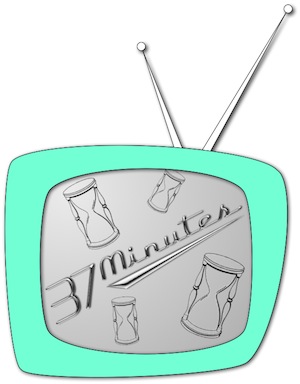 Careers don’t always go in the direction you expect. For example, I went to college intending to become a history professor, and now I’m a freelance writer. You just never know. Heroic fictional characters, on the other hand, tend to proceed through life as if trekking (*ahem*) down an enchanted path strewn with rose petals, accompanied by a chorus of angels singing ballads of their triumphs.
Careers don’t always go in the direction you expect. For example, I went to college intending to become a history professor, and now I’m a freelance writer. You just never know. Heroic fictional characters, on the other hand, tend to proceed through life as if trekking (*ahem*) down an enchanted path strewn with rose petals, accompanied by a chorus of angels singing ballads of their triumphs.
And speaking of heroics, recently I was reading about the “Five Ages of Man” as expounded by the ancient Greek poet Hesiod in his epic Works and Days. As I read it, I was struck by how the ages more or less mirrored the career path of TV’s most famous spaceship commander, James T. Kirk.
See what you think:
The Golden Age
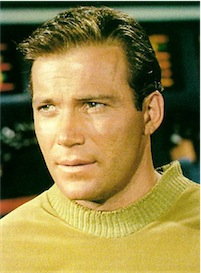 “. . . the deathless gods who dwell on Olympus made a golden race of mortal men who . . . lived like gods without sorrow of heart, remote and free from toil and grief: miserable age rested not on them; but with legs and arms never failing they made merry with feasting beyond the reach of all evils. . . . they are called pure spirits dwelling on the earth, and are kindly, delivering from harm, and guardians of mortal men; for they roam everywhere over the earth, clothed in mist and keep watch on judgements and cruel deeds . . . ”
“. . . the deathless gods who dwell on Olympus made a golden race of mortal men who . . . lived like gods without sorrow of heart, remote and free from toil and grief: miserable age rested not on them; but with legs and arms never failing they made merry with feasting beyond the reach of all evils. . . . they are called pure spirits dwelling on the earth, and are kindly, delivering from harm, and guardians of mortal men; for they roam everywhere over the earth, clothed in mist and keep watch on judgements and cruel deeds . . . ”
Substitute “space” for “earth” and you have a pretty good description of Captain Kirk as we first met him — a man whose arms and legs (and occasionally his lungs) never failed him, who roamed everywhere keeping watch on the cruel deeds of a phalanx of bad-guy aliens. Although never entirely free from toil and grief, Golden Age Captain Kirk always managed to shrug it off by the end of the episode, before pointing his stalwart crew toward their next weekly adventure.
The Silver Age
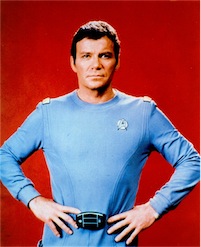 “. . . then they who dwell on Olympus made a second generation which was of silver and less noble by far. It was like the golden race neither in body nor in spirit . . . an utter simpleton, playing childishly in his own home. But . . . they lived only a little time in sorrow because of their foolishness . . . . Then Zeus the son of Cronos was angry and put them away . . . . ”
“. . . then they who dwell on Olympus made a second generation which was of silver and less noble by far. It was like the golden race neither in body nor in spirit . . . an utter simpleton, playing childishly in his own home. But . . . they lived only a little time in sorrow because of their foolishness . . . . Then Zeus the son of Cronos was angry and put them away . . . . ”
The second incarnation of Kirk certainly was surrounded by silver (and, for some reason, lots of beige) and generally agreed by the fans to be indeed less noble by far and pretty childish. Lacking the body and spirit of the Golden Age, this era fortunately spent little time in its sorrow. So let us follow the example of Zeus and quickly put this age away and hasten on to:
The Bronze Age
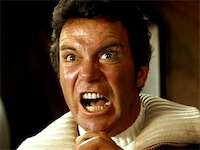 “Zeus the Father made a third generation of mortal men, a brazen race . . . terrible and strong. They loved the lamentable works of Ares and deeds of violence; they ate no bread . . . . Great was their strength and unconquerable the arms which grew from their shoulders on their strong limbs. Their armour was of bronze, and their houses of bronze, and of bronze were their implements . . . . . These were destroyed by their own hands and passed to the dank house of chill Hades . . . ”
“Zeus the Father made a third generation of mortal men, a brazen race . . . terrible and strong. They loved the lamentable works of Ares and deeds of violence; they ate no bread . . . . Great was their strength and unconquerable the arms which grew from their shoulders on their strong limbs. Their armour was of bronze, and their houses of bronze, and of bronze were their implements . . . . . These were destroyed by their own hands and passed to the dank house of chill Hades . . . ”
Terrible and strong was Kirk at this age, a more violent and combative man who ate not bread but apples and was unconquerable in battle. And his new uniform sure had a lot of bronze on it. Not to mention that he destroyed his house by his own hand, passing it down into Hades in a big ol’ fireball.
The Heroic Age
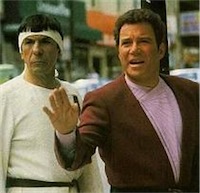 “. . . Zeus the son of Cronos made yet another . . . which was nobler and more righteous . . . . Grim war and dread battle destroyed a part of them . . . . And they live untouched by sorrow in the islands of the blessed along the shore of deep swirling Ocean, happy heroes for whom the grain-giving earth bears honey-sweet fruit flourishing thrice a year . . . . And these last equally have honour and glory. ”
“. . . Zeus the son of Cronos made yet another . . . which was nobler and more righteous . . . . Grim war and dread battle destroyed a part of them . . . . And they live untouched by sorrow in the islands of the blessed along the shore of deep swirling Ocean, happy heroes for whom the grain-giving earth bears honey-sweet fruit flourishing thrice a year . . . . And these last equally have honour and glory. ”
Okay, maybe I’m reaching a bit here, but work with me. A nobler and more righteous Kirk leads his happy heroes to the shores of the deep swirling Pacific where they brought unto the Earth once more the whales that would prevent more grim war from that big Space Log. And once he gets busted back to Captain, he gets the honor and glory. See, it kind of works.
The Iron Age
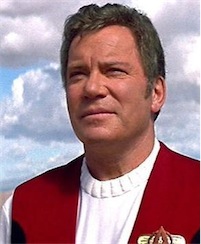 “For now truly is a race of iron, and men never rest from labour and sorrow by day, and from perishing by night; and the gods shall lay sore trouble upon them. But, notwithstanding, even these shall have some good mingled with their evils. And Zeus will destroy this race of mortal men also when they come to have grey hair on the temples at their birth.”
“For now truly is a race of iron, and men never rest from labour and sorrow by day, and from perishing by night; and the gods shall lay sore trouble upon them. But, notwithstanding, even these shall have some good mingled with their evils. And Zeus will destroy this race of mortal men also when they come to have grey hair on the temples at their birth.”
When we last meet Jim Kirk, he is roused from complacency in the Nexus to seek once more the labor and sorrow by which he had made his name and reputation in ages past. Finding sore trouble once more, he at last perishes by night, but there is indeed some good mingled in as he manages to save another planet from sure destruction. Just like old times.
And that last line probably explains Kirk’s hair.
So there you have it: an epic life as plotted by an epic poet. As Hesiod wrote in Works and Days, “Both gods and men are angry with a man who lives idle, for in nature he is like the stingless drones who waste the labour of the bees, eating without working.” When it comes to describing the life of Captain Kirk, the word “idle” doesn’t make the cut. Eating, sure. But eating and working? That’s our Captain.


Pingback: SF Signal: SF Tidbits for 4/14/11
Pingback: Geek Media Round-Up: April 18, 2011 – Grasping for the Wind